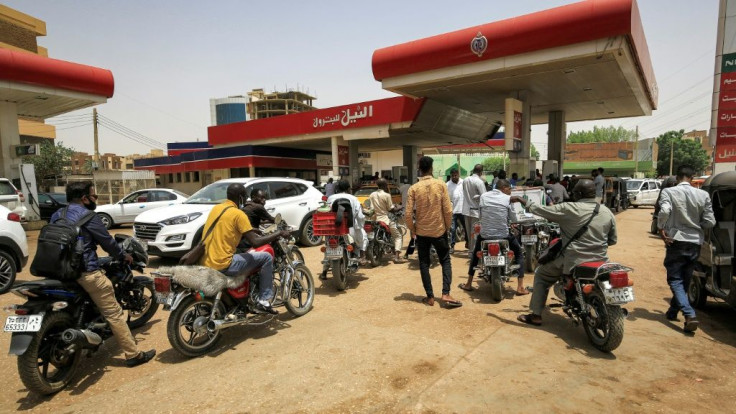IMF Approves $2.5 Bn Loan, Debt Relief Deal For Sudan
The IMF on Tuesday approved a $2.5 billion loan for Sudan, and with the World Bank sealed a landmark deal that unlocks nearly $50 billion in debt relief for the impoverished African nation.
The announcement came after the International Monetary Fund finalized an agreement with 101 donor countries allowing Sudan to clear roughly $1.4 billion in arrears to the Washington-based lender -- the key hurdle to allow access to fresh aid.
"We congratulate the Sudanese government and people for their commendable hard work and progress toward this remarkable milestone," IMF chief Kristalina Georgieva and World Bank President David Malpass said in a joint statement.
Payment of the arrears is the "decision point" that allows access to debt relief under the Heavily-Indebted Poor Countries (HIPC) initiative which the officials said will cover $50 billion or about 90 percent of the country's foreign debt.
Sudan will receive $1.4 billion immediately under the 39-month IMF loan program.
Washington welcomed the announcement that Sudan is now eligible to receive debt relief from the international lending institutions.
"This is a historic moment for Sudan and its people," US Treasury Secretary Janet Yellen said in a statement.
"These steps will unlock much-needed financing and will help build the foundation for poverty reduction, inclusive development, and economic growth."
Yellen also praised the efforts of Sudan's civilian government to stabilize the economy.
The new aid comes amid a rapprochement between the United States and Sudan following the ouster of strongman Omar al-Bashir, who was toppled amid street protests in April 2019 after three decades of iron-fisted rule marked by economic hardship, deep internal conflicts, and biting international sanctions that curtailed investment.

In the past two years, Prime Minister Abdalla Hamdok, a seasoned UN economist-turned-premier, has pushed to rebuild the crippled economy and end Sudan's international isolation.
Washington in December removed Sudan from its blacklist of state sponsors of terrorism, removing a major hurdle to foreign investment.
President Joe Biden has continued the thaw in relations since taking office in January, and his administration has taken a leading role in encouraging other governments to join in the effort to provide debt relief.
The US Treasury in March announced $1.15 billion in bridge financing to help clear Sudan's arrears at the World Bank, after Khartoum's civilian-backed government announced a series of reforms.
Treasury said the United States also committed to contribute up to $120 million in grant resources to fund IMF debt relief for Sudan under the first phase of HIPC.
Sudan is the last country to clear arrears with the IMF, which now faces no repayment arrears from its members for the first time since early 1974.
Georgieva praised the government's "strong policy commitment" that has shored up public finances "while channeling assistance to the most vulnerable."
But she said "continued reform commitment will be critical to achieve the program's objectives, as well as to reduce poverty and secure higher and more inclusive growth."
The government moved to a market-based exchange rate and removed fuel subsidies in its efforts to secure the deal with the crisis lenders.
In an interview with AFP last month, Hamdok said the widely unpopular moves were needed to secure debt relief and the government was calling on foreign investors to "explore the opportunities for investing in Sudan."
© Copyright AFP 2024. All rights reserved.











